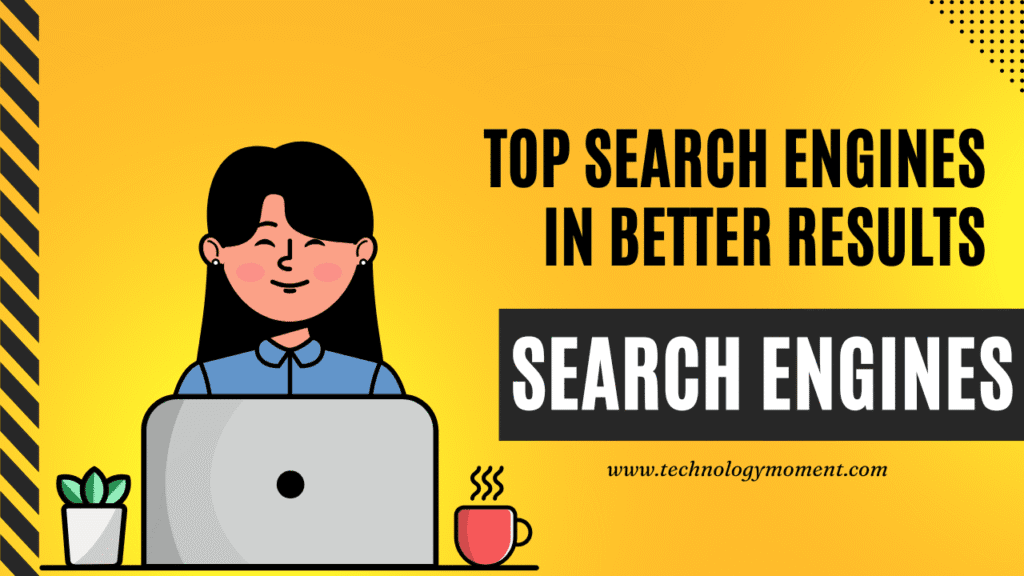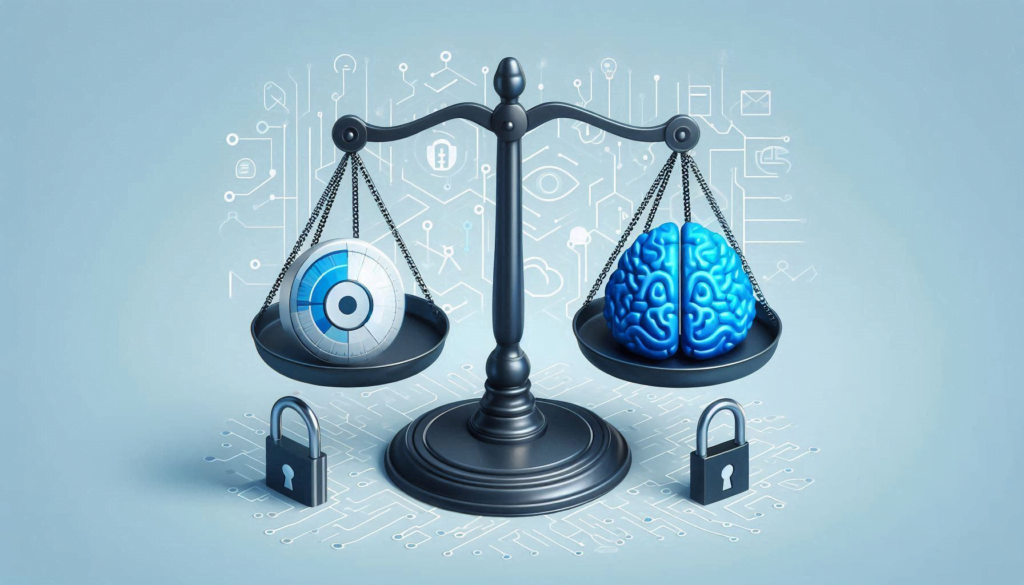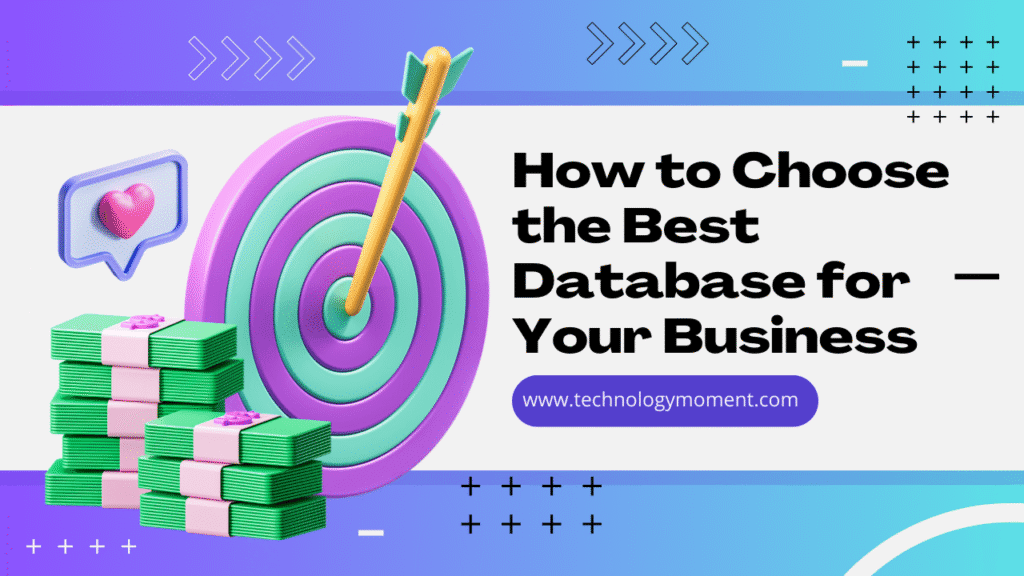
Welcome to Technology Moment – Where the Future of Tech Meets You. At Technology Moment, we dive deep into the digital trends that shape how we live, work, and explore the world online. In this ever-evolving tech landscape, staying informed isn’t just an advantage—it’s essential. Whether you’re a tech-savvy pro, a digital marketer, or just someone trying to find accurate information without being stalked by ads, the search engine you use plays a huge role in your online experience.
The year 2025 is not just about new smartphones or social media apps—it’s about how we search. With AI now baked into almost every platform, and privacy concerns making headlines worldwide, the search engine you choose can seriously affect what you see (and what you don’t). Google may still dominate the scene, but it’s far from the only player in the game. From privacy-first alternatives like DuckDuckGo to AI-powered disruptors like You.com, the competition is heating up, and users are gaining more control than ever.
In this blog post, we’ll explore the top search engines in 2025—not just the familiar names, but also the rising stars, niche-specific platforms, and innovative tools redefining how we access the internet. So buckle up and get ready to discover which search engines are truly worth your clicks this year. Welcome to the future of search, powered by Technology Moment.
Table of Contents
In 2025, how we search the internet has completely transformed. Search engines are no longer just tools to find websites—they’ve become intelligent, context-aware assistants. From AI-powered query understanding to ultra-private search modes, the experience is more personal, faster, and often less intrusive.
Think back just a few years. Searching for something like “cheap flights to Dubai” would lead you through pages of ads, sponsored content, and irrelevant results. Today, smart engines can interpret your intent, learn your preferences, and deliver a clean, accurate, and ad-light experience. But only if you’re using the right search engine.
That’s why this article exists. Whether you’re looking to escape Google’s massive data tracking, find eco-conscious alternatives, or just want more relevant search results, understanding the top search engines of 2025 can drastically improve your online experience.
Let’s explore how we got here—and where your next best search should begin.
The Evolution of Search Engines
The journey from basic keyword matchers to intelligent AI companions has been anything but ordinary.
Back in the early 2000s, Yahoo and AltaVista were your go-to. Then came Google, which revolutionized the game with its PageRank algorithm. For over two decades, Google remained the undisputed king, reliable, fast, and incredibly smart. But dominance often breeds complacency.
By the mid-2020s, people started questioning the cost of “free” services. Data breaches, privacy scandals, and increasingly biased results made users rethink their loyalty. The tipping point? AI.
OpenAI’s ChatGPT, Google’s Gemini, Microsoft’s Copilot—these tools reshaped how we expect search to work. Users wanted not just answers, but understanding. They wanted fewer ads, more relevance, and zero tracking. So the market responded.
Search engines like You.com offered customizable, AI-powered results. DuckDuckGo doubled down on privacy, and Brave removed ads altogether. Meanwhile, traditional engines like Bing rebranded themselves through AI integrations that made them useful again.
Countries started rolling out regulations for data privacy and fair access to information. For example, in Germany, Brave Search gained traction as people grew wary of Google’s deep data ecosystem. The search engine revolution wasn’t just technical—it was global, personal, and political.
The Current Top Search Engines in 2025
To give you a clearer picture, here’s a snapshot of the top players in 2025, with real-world context:
| Search Engine | What Makes It Unique in 2025 | Who It’s Best For |
|---|---|---|
| Still the fastest and most comprehensive, but with more ads and AI clutter | Users who want default access and familiar results | |
| Bing (with Copilot) | Now integrated with Microsoft’s AI Copilot, offering real-time, contextual answers | Professionals, students, and enterprise users |
| DuckDuckGo | Leading private search engine, zero tracking, simplified results | Privacy-conscious users, journalists |
| Brave Search | Tech-savvy users, developers, and ethical searchers | Plant trees with every search, focused on sustainability |
| You.com | Customizable layout, AI summaries, plugins like Chat and Code | Researchers, coders, writers |
| Yahoo | Surprisingly useful again for news, finance, and emails | Users nostalgic for the early internet but need functionality |
| Ecosia | Eco-conscious users, NGOs, and schools | Parents, schools, and privacy advocates |
| StartPage | Google’s results with none of the tracking | Users who want Google accuracy with privacy |
| Swisscows | Family-safe, secure, hosted in Switzerland | Parents, schools, privacy advocates |
| Mojeek | Truly independent, no tracking or influence from big tech | Academics, ethical researchers, watchdogs |
Real Example: In Canada, Ecosia reported a 40% rise in adoption among universities, thanks to partnerships promoting green tech. Meanwhile, Switzerland saw a surge in Swisscows users after GDPR-like laws were passed, making privacy non-negotiable.
The important takeaway? There is no “one-size-fits-all” anymore. The best search engine depends entirely on what you value—speed, privacy, ethics, AI integration, or all of the above.
Best Niche Search Engines for Specific Needs
Sometimes, your goal isn’t just to “search”—it’s to solve a specific problem quickly and efficiently. And that’s where niche search engines shine.
Job Searching?
Tools like Indeed, Glassdoor, and Monster have been staples for years, but in 2025, they’ve been enhanced with AI. Now, you don’t just search for “remote jobs in marketing”—you get skill-matched listings, suggested salary benchmarks, and even company culture fit predictions.
Flight Hunting?
Gone are the days of bouncing between 10 tabs. Skyscanner, Google Flights, and Kayak have revolutionized the game by integrating predictive pricing AI. In the UAE, for instance, business travelers use Google Flights not just for fares but also for hotel and visa package suggestions, all in one place.
Exploring the Dark Web?
Whether you’re a security researcher or a journalist, search engines like Ahmia or Torch offer access to .onion sites without compromising anonymity.
Academic Research?
Tools like Semantic Scholar and Wolfram Alpha are essential in universities. They not only pull up data but also offer in-depth visualizations, equations, and expert-level interpretations. In Japan, AI-powered academic search is already replacing traditional library systems in top-tier universities.
Each of these niche engines is optimized for a specific task, and if you’re still trying to use Google for everything, you’re missing out on better, faster, and safer results.
Why Use Alternative Search Engines?
Let’s face it—Google has been the default for so long that most people don’t even think about switching. It’s the digital equivalent of breathing. But in 2025, that automatic choice is finally being challenged, and for good reason.
Imagine you’re living in Germany, where data protection is taken very seriously. You might be using StartPage or Swisscows, which not only anonymize your searches but also strip out trackers entirely. People in France have also turned to Qwant, a search engine that doesn’t log personal data, aligning with European privacy laws like the GDPR.
The truth is, more users around the world are getting uncomfortable with being watched. Every click, every search, every ad you see is often tailored not for your benefit, but to sell you something or manipulate your attention. That’s why people are seeking out alternatives like DuckDuckGo, Brave, or Mojeek—tools that don’t just talk about privacy but are built around it.
Others are using alternative engines not just for privacy, but for focus. Say you’re a student in India, and you want clean, ad-free academic results. Google might bombard you with shopping links and YouTube distractions. Meanwhile, a search engine like You.com or WolframAlpha gives you streamlined, AI-powered answers that skip the clutter and get to the point.
Alternative search engines offer more than just different logos—they give you control over your online experience, which in 2025 is more valuable than ever.
Search Engine Market Share in 2025
The search engine landscape in 2025 looks very different from even a few years ago. Yes, Google still leads globally, but its market share has taken a hit, especially in regions where privacy and AI ethics are high on the agenda.
In the United States, Microsoft Bing, now fully integrated with AI Copilot, has gained traction. It’s not just because of novelty, but because people love how Bing summarizes results, breaks down topics, and even helps write content, without opening 10 tabs. Surveys from early 2025 show Bing growing its user base among professionals, students, and even teachers.
Meanwhile, in Asia, there’s a surge in region-specific engines. In China, Baidu is still dominant, but AI advancements have led to more nuanced competition. In Japan, newer engines that prioritize visual and voice search have started chipping away at Google’s lead.
Ecosia, the eco-friendly search engine that plants trees for every search, has carved out a niche in Australia, Scandinavia, and eco-conscious parts of North America. People are not just choosing search engines for speed anymore, but for impact.
Overall, the top 10 search engines in 2025 are more diverse than ever. This shift means users now have real choice, and that’s a massive win for the open web.
AI and the Future of Search
Here’s where it gets futuristic. If 2023 was the rise of ChatGPT and AI tools, then 2025 is the year AI takes over the way we search.
In Canada, a freelance designer uses AI-driven search to find royalty-free images, code snippets, and brand templates—all in one place, without hopping through multiple websites. These engines are becoming like digital assistants—more than just search boxes, they’re interactive, intelligent advisors.
Even Google isn’t standing still. It’s rolled out Search Generative Experience (SGE)—a blend of search and AI that summarizes complex topics, recommends sources, and offers actions like translating or emailing—all from one screen.
But this AI transformation isn’t without caution. In the UK, regulators are closely watching how AI in search is affecting news, education, and misinformation. That’s why many people prefer open-source search engines that let them understand how results are generated.
In 2025, the future of search is personal, predictive, and powered by AI—but also demands transparency and trust.
How to Choose the Best Search Engine for You
Choosing a search engine used to be like choosing a brand of toothpaste—most people just grabbed what was familiar. But now, with options that serve different goals, needs, and values, your choice should be more intentional.
Let’s say you’re a digital nomad working in Bali. You rely on fast, reliable answers with minimal distractions. In this case, Brave Search or You.com might be perfect. They’re clean, fast, and distraction-free—so you stay productive.
If you’re a parent in the UK, you’re likely more concerned about safe content for your kids. That’s where Swisscows comes in—it blocks explicit content and respects your child’s digital privacy.
For someone working in cybersecurity in Tel Aviv, the preference might be Mojeek or StartPage, because they use independent indexing and ensure searches aren’t being monitored.
So, how do you pick?
- Do you care about privacy? Go with DuckDuckGo, StartPage, or Brave.
- Need AI productivity? Try You.com or Bing.
- Want to support the environment? Ecosia is your search buddy.
- Love minimalist design? Mojeek might surprise you.
In 2025, choosing a search engine is like picking the right pair of shoes. You could wear anything, but the right fit makes all the difference in how you move through your digital world.
Search Engines Better Than Google (in Some Ways)
It processes over 8.5 billion searches per day, and most of us instinctively “Google” instead of saying “search.” But here’s the twist: being the biggest doesn’t always mean being the best for everyone.
In 2025, users across the globe are beginning to look for something different—faster results, fewer ads, more privacy, and less bias. And that’s where alternative search engines come in.
Take DuckDuckGo, for example. In Germany, where data privacy laws are taken seriously, DuckDuckGo has seen explosive growth. People there are fed up with being followed by targeted ads after a single search. Similarly, in the U.S. state of California, where awareness of digital surveillance is high, more people are adopting Brave Search, which eliminates ad tracking and uses its independent index.
Now consider You.com, a rising star especially popular among Gen Z users and startup professionals. It offers customizable search experiences and AI summaries right in your results—think ChatGPT mixed with a search bar. In places like Singapore and Seoul, where AI integration is leading mainstream tech, You.com is being praised for helping coders, students, and researchers quickly extract actionable insights without wading through SEO-stuffed blog posts.
Then there’s Ecosia, a game-changer in eco-conscious communities around the world. In Amsterdam, where sustainability is almost a civic duty, more users are switching to Ecosia. Why? Because every search helps plant trees. As of 2025, they’ve planted over 180 million. That’s not just browsing the internet—it’s making a difference.
So, while Google may win in terms of speed and familiarity, other search engines are carving out niches where they simply do it better—whether it’s protecting your privacy, giving you real answers faster, or letting you give back to the planet just by searching.
Top 10 Search Engines in 2025 – Ranked
When it comes to picking the best search engine, there’s no one-size-fits-all answer. It depends on what you value—privacy, speed, UI simplicity, or niche functionality.
In 2025, after analyzing market trends, global user reviews, and independent testing across different use-cases (including academic research, ecommerce, travel, and coding), here’s how the top 10 search engines rank today:
| Rank | Search Engine | Best For | Notable Feature |
|---|---|---|---|
| 1 | Overall Performance | Fastest and most comprehensive | |
| 2 | Bing (with AI Copilot) | AI-powered answers | Integrated with Microsoft 365 |
| 3 | DuckDuckGo | Privacy seekers | No tracking or data logging |
| 4 | You.com | AI-integrated search | Summarized answers with tools |
| 5 | Brave Search | Ad-free experience | No tracking, open-source index |
| 6 | Ecosia | Eco-conscious users | Owns and builds its index |
| 7 | Yahoo | News and email users | Integrated content portal |
| 8 | StartPage | Google results, private search | Google-powered results without tracking |
| 9 | Swisscows | Family-friendly searches | Data-secure and safe for kids |
| 10 | Mojeek | Independence from Big Tech | Owns and builds its own index |
Let’s take India, for example. While Google and Bing dominate, there’s a rising interest in Ecosia and You.com among college students. They’re drawn to the purpose and AI benefits—searching smarter while contributing to global reforestation. Meanwhile, DuckDuckGo is gaining momentum in Canada, where new legislation around user data has triggered a wave of privacy-first adoption.
The key takeaway? You have choices now. Whether you want AI-powered tools, ethical browsing, or an ad-free zone, there’s a search engine built with you in mind.
Conclusion
The world of search has evolved far beyond typing a few words into Google and hitting “Enter.” In 2025, your search engine choice is not just about results—it’s about values, convenience, privacy, and even global impact.
Whether you’re a journalist in Brazil looking to avoid filter bubbles, a student in Tokyo needing fast AI summaries, or a climate activist in Nairobi planting trees with every search.
Google may still lead in raw power, but it’s no longer the undisputed choice for everyone. Alternative platforms like DuckDuckGo, Brave, and You.com are pushing boundaries and putting control back in the hands of the user. The beauty of today’s internet is that you get to choose how you explore it.
So next time you want to search for something, pause. Ask yourself—what do I? Let’s be real—Google is the king of search engines. want from my search engine? Then pick the one that serves you best.
FAQs
What are the five most popular search engines right now?
In 2025, the five most used and recommended search engines are Google, Bing (with AI), DuckDuckGo, You.com, and Brave Search—each excelling in different areas like speed, privacy, and AI integration.
Is DuckDuckGo better than Google?
For privacy, absolutely. DuckDuckGo doesn’t store or share your data. But if you’re looking for the fastest and most comprehensive results, Google still takes the lead.
What are private search engines?
Private search engines like StartPage, Brave, and Swisscows do not track your IP address, browsing history, or clicks. They’re ideal for users who value anonymity.
What’s the best search engine for job hunting?
While general engines can help, dedicated job search engines like Indeed, Glassdoor, and LinkedIn Jobs offer better filtering, alerts, and employer insights.
Are there any search engines without ads?
Yes! Both Mojeek and Brave Search provide a clear, ad-free experience. You can also enable ad-block modes on some platforms or pay for premium versions of others to skip ads.













